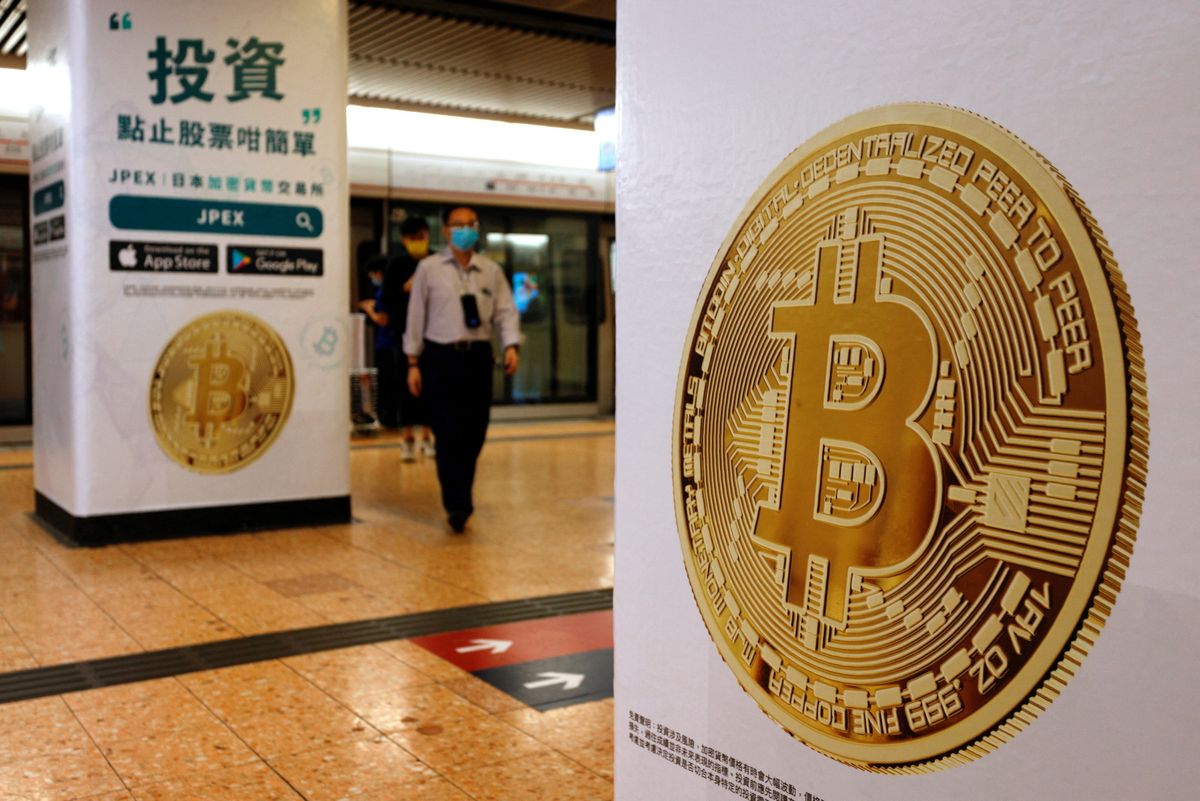Hong Kong's JPEX investigation
Authorities have taken action, arresting eleven people, including some well-known figures and social media personalities.

A few minutes every morning is all you need.
Stay up to date on the world's Headlines and Human Stories. It's fun, it's factual, it's fluff-free.
The backstory: As we’ve talked about before, while crypto trading is banned in mainland China, Hong Kong wants to be a major player in the crypto world and has been making moves to achieve that. In June, the Hong Kong Securities and Futures Commission (SFC) decided to allow cryptocurrency exchanges to serve not just pros but everyday investors, provided they understood the risks involved. By August, only two exchanges, OSL Exchange and Hashkey Exchange, had gotten the green light.
More recently: Now, JPEX, a crypto trading platform in Hong Kong, is in hot water and faces allegations of fraud. This scandal has escalated into one of the biggest fraud investigations ever in Hong Kong. The platform was founded in 2020, claimed to handle US$2 billion in assets and aspired to be a top-five global virtual asset exchange. It even hired famous influencers and splashed ads all over Hong Kong's MTR train system to attract investors.
Last week, the SFC revealed that JPEX, based in Dubai, was operating in Hong Kong without the required license for virtual asset trading. JPEX defended itself, saying it tried to comply with the rules. But things got complicated when investors reported issues with withdrawals and altered balances. Consequently, JPEX suspended trading and said it was “negotiating with … third-party market makers to resolve the liquidity shortage” and blamed an unidentified one for the fund freeze.
The development: Authorities have taken action, arresting eleven people, including some well-known figures and social media personalities. This came after over 2,000 investors filed complaints about the exchange. Among the detainees are Joseph Lam, formerly a barrister and now an insurance salesman self-described as Hong Kong's "Trolling King," and Chan Yee, a YouTube influencer with a big online following. Reportedly, the city has also blocked access to the platform’s website and app.
In terms of financial impact, the police have frozen bank accounts holding HK$15 million (US$1.9 million) and snatched up three properties valued at HK$44 million (US$5.6 million). So far, the case is dealing with about HK$1.4 billion (US$178 million) in claims.
Hong Kong's Chief Executive John Lee has stressed the importance of investor protection. He's advocating for the use of licensed platforms for investing in virtual assets and ramping up public education to make sure everyone knows the risks involved.
Key comments:
"The SFC affirms that JPEX has never approached the SFC in respect of any potential licence application and that no entity in the JPEX group is licensed by the SFC or has applied to the SFC for a licence to operate a virtual asset trading platform in Hong Kong. As such, there has been no communication between the SFC and JPEX on licensing-related matters," said the SFC in a statement. "Subsequent information obtained has led to suspicion of fraud and the SFC has referred the matter to the Police. As investigations are ongoing, the SFC cannot make any further comment."
"Other platforms that are not regulated by the SFC, then there will be a lot of risks. They have to anticipate we will be doing more public education, for investors to know the risks, how investments operate on such platforms and how our licensing regime will ensure that what platforms are sufficiently regulated for investors to place their investment on," said Hong Kong Chief Executive John Lee.
"The changing attitude of the Hong Kong SAR government towards crypto signals a nod from the Chinese central government granting pilot status to HK for some forward-looking experiments on how can crypto be best adopted and localized for the huge Chinese market at large," said Justin Sun, founder of Tron, in January. "I'm very bullish on the outlook for crypto in the greater China region for the next decade."




Comments ()